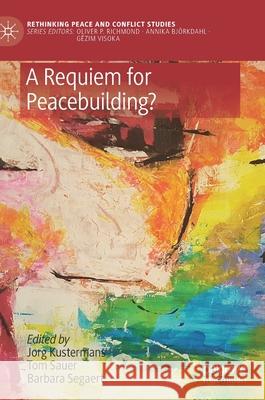A Requiem for Peacebuilding? » książka
topmenu
A Requiem for Peacebuilding?
ISBN-13: 9783030564766 / Angielski / Twarda / 2020 / 247 str.
A Requiem for Peacebuilding?
ISBN-13: 9783030564766 / Angielski / Twarda / 2020 / 247 str.
cena 523,30
(netto: 498,38 VAT: 5%)
Najniższa cena z 30 dni: 501,19
(netto: 498,38 VAT: 5%)
Najniższa cena z 30 dni: 501,19
Termin realizacji zamówienia:
ok. 16-18 dni roboczych.
ok. 16-18 dni roboczych.
Darmowa dostawa!
Kategorie BISAC:
Wydawca:
Palgrave MacMillan
Seria wydawnicza:
Język:
Angielski
ISBN-13:
9783030564766
Rok wydania:
2020
Wydanie:
2021
Numer serii:
000312198
Ilość stron:
247
Waga:
0.46 kg
Wymiary:
21.01 x 14.81 x 1.6
Oprawa:
Twarda
Wolumenów:
01
Dodatkowe informacje:
Wydanie ilustrowane











